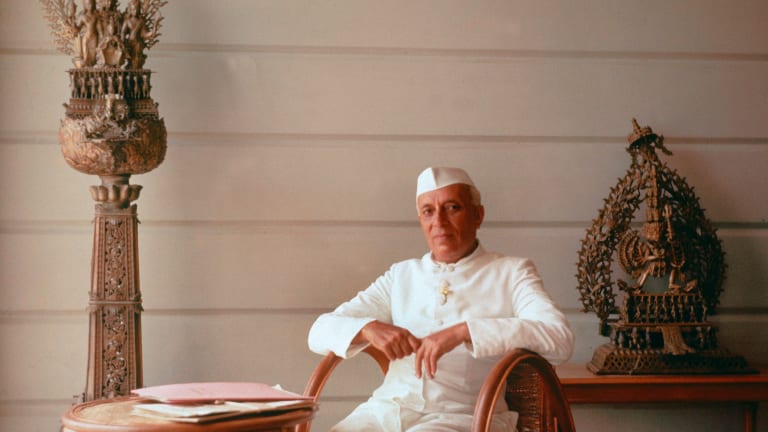
Jawaharlal Nehru was the first prime minister of independent India. He has been referred to as the ‘Architect of modern India’. He remains the longest serving prime minister of the country.
Jawaharlal Nehru was born on November 14, 1889, in Allahabad, India, to Motilal Nehru and Swarup Rani. Motilal Nehru himself was a part of Indian independence movement.
Jawaharlal’s Father served as the president of the Indian National Congress twice. Nehru received his early education at home till the age of fifteen, after which he went to Harrow School in England. For his higher education, Nehru attended Trinity College in Cambridge.
In 1910, Nehru went to London. There, he studied law at the Honorable Society of the Inner temple. In 1912, Nehru came back to India, having developed a sense of nationalism. He started his practice as a lawyer at the Allahabad High Court.
Nehru was not satisfied with how the Indian National Congress was functioning. Indian commoners were dominated by the English- knowing upper –class elite. Soon, he joined the civil rights movement launched by Gandhi, angered by the harsh treatment of his fellow Indians by the British. He suffered willingly for the sake of his country.
In 1917, Nehru joined the All Indian Home Rule League. He had immense support form Gandhi he worked with the National Congress and was elected to the Post of the General Secretary of the Congress.
In 1920, the Non-cooperation Movement was launched. It was started by Mahatma Gandhi and Nehru. For launching this movement, both of them were jailed for the first time. In 1929, Jawaharlal Nehru was named as the president of the Indian National Congress.
Nehru also took part in the Civil Disobedience movement. At the same time, Mahatma Gandhi started the Satyagaraha movement,which was supported by Nehru. However he was once again imprisoned, along with a large number of nationalist. When World War II ended, Nehru asked for complete independence of India.
In 1947, India got independence and the British departed form Indian soil. But before they left, they divided the country into two nations, Indian and Pakistan.
Nehru became the first prime minister of the country soon after the country got independence. He made many changes in domestic international, economic agriculture and social policies.
He built many renowned institution and industries, which boosted the Indian economy and helped in its modernization. Nehru greatly emphasized on equality irrespective of caste, color of religion.
Nehru’s main focus was education and the youth of the country. He felt that the youth were vital for the country’s future growth. So he founded organizations of higher learning, such as the All the India Institute of Medical Sciences (AIIMS), the Indian Institute of Technology (IIT), the Indian Institute of Management (IIM) and others. He introduced free and compulsory primary education to all the children in his five-year plan.
Nehru also began the National Defence Academy and the Atomic Energy Commission of India (AEC). He strengthened the country with modern equipment and defense systems to safeguard the borders.
He also built good relations with the neighboring countries. Nehru supported the inclusion of the People’s Republic of China as a permanent member in the Security Council of the United Nations. This helped in establishing friendly relations. But, it did not last very long and soon border disputes arose. In 1962, china invaded India’s northern border. It was known as the Sino- Indian War. The war and conflicts took a toll Nehru’s health.
In 1955, Nehru was awarded the Bharat Ratan Award, India’s highest civilian honor. He received this award for his exceptional contribution to the freedom struggle.
Nehru married Kamala Kaul in 1916. They had one daughter, Indira Priyadarshni Nehru (later Gandhi), who became the first female prime minister of the country.
Nehru was very fond of children. He was addressed as’ Chacha Nehru’ by children all over the country. In 1965, the Government of India introduced the Jawaharlal Nehru Award. Nehru died on May 27, 1964.
